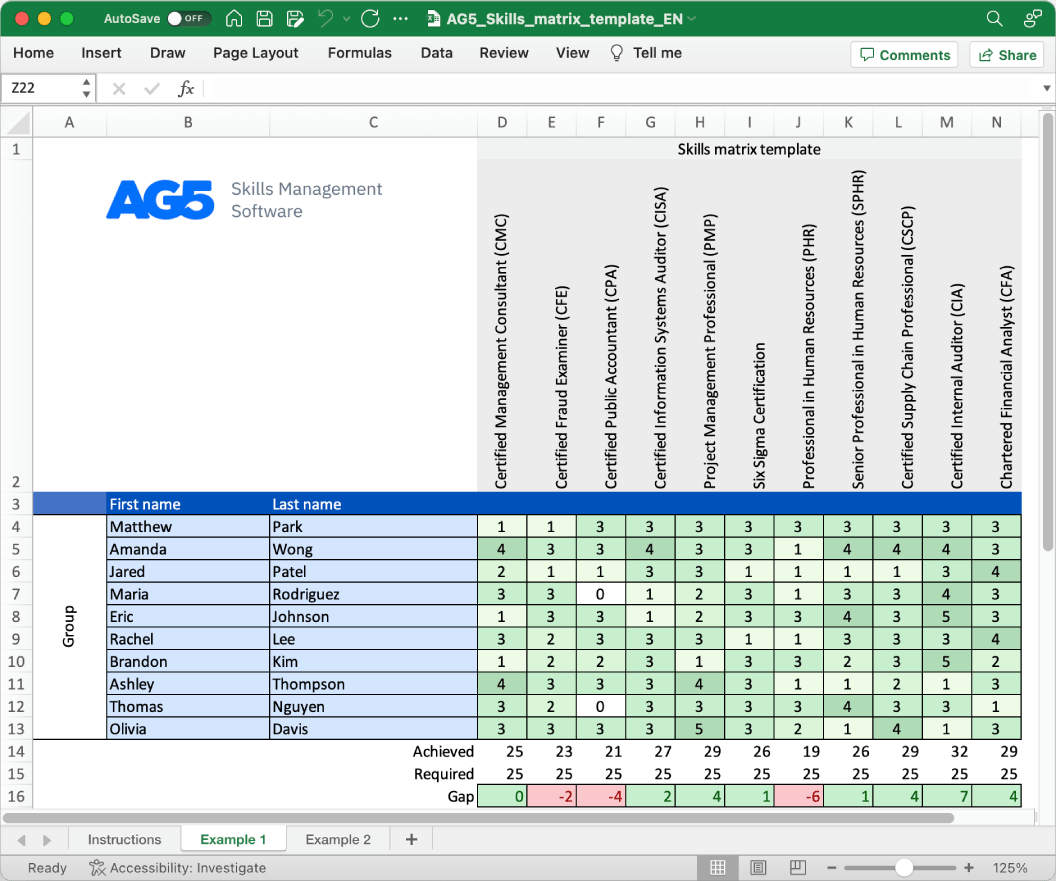Risk control implementation skills matrix template
A skills matrix template is a tool teams can use to assess their risk control implementation skills and knowledge
Download your free template here

Overview Copied
With our free risk control implementation skills matrix template, you will receive a clear overview of the skills that are present in your organization, as well as those that are missing. Using this information, you can develop and implement a plan to ensure that your employees’ skills are up to date, comprehensive, compliant, and ready for the future.
- Certified Risk Management Professional (CRMP)
- Certified Risk Analyst (CRA)
- Certified Risk Manager (CRM)
- Certified Risk Specialist (CRS)
- Certified Risk Consultant (CRC)
- Certified Risk Assessment Analyst (CRAA)
- Certified Risk Assessment Specialist (CRAS)
- Certified Risk Assessment Manager (CRAM)
- Certified Risk Assessment Consultant (CRAC)
- Certified Risk Evaluation Analyst (CREA)
- Certified Risk Evaluation Specialist (CRES)
- Certified Risk Evaluation Manager (CREM)
- Certified Risk Evaluation Consultant (CREC)
- Certified Risk Mitigation Analyst (CRMA)
- Certified Risk Mitigation Specialist (CRMS)
- Certified Risk Mitigation Manager (CRMM)
- Certified Risk Mitigation Consultant (CRMC)
- Certified Risk Control Analyst (CRCA)
- Certified Risk Control Specialist (CRCS)
- Certified Risk Control Manager (CRCM)
Benefits Copied
Skills management software is important in risk control implementation, as it helps identify skilled individuals to implement risk mitigation measures effectively.
Author Copied
Revisions Copied
Tired of managing skills in Excel?
Say goodbye to Excel matrices. Start using AG5’s plug and play skill matrix software.
Recognized by G2 for Excellence in Skills Management

